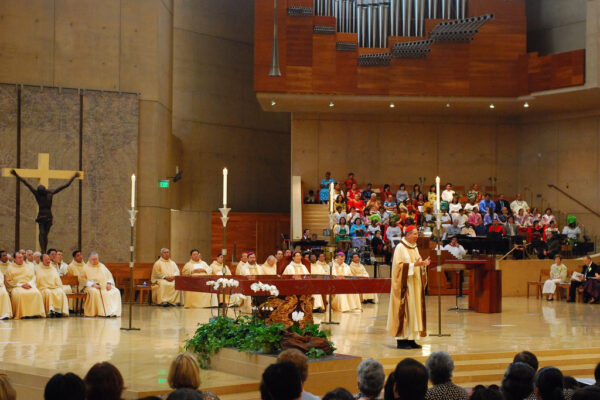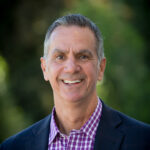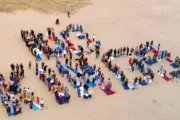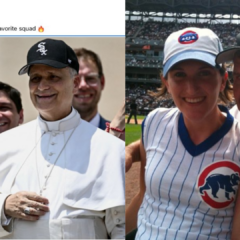With the recent retirement of Cardinal Roger Mahony, many assessments of both his accomplishments and shortcomings have–and will–be written. But any appraisal of Mahony’s contributions to the civic culture of Los Angeles is incomplete without a close examination of what he represents in a larger sense: the public role of the faith community and its potential for providing a moral perspective on the important issues and challenges facing our city.
The role of the faith community in the public life of Los Angeles has a long history and includes efforts ranging from meeting the everyday needs of the less fortunate to responding to catastrophic events, both natural and human-made. Faith groups routinely provide food, clothing and short-term shelter for those on society’s margins, and in the aftermath of the last major social upheaval in Los Angeles–the violence that followed the verdicts in the Rodney King beating trial in 1992–the faith community played a significant role in helping to bridge divisions across the city.
Since that tumultuous year, the public role of the faith community has increased significantly. The number of congregations of all religious groups has grown by 40 percent, and the number of religion-related non-profits has more than doubled. And as government resources have grown tighter, this diverse cohort of spiritually motivated civic activists has stepped in to fill the breach. Currently the faith community is engaged in a broad range of programs that address important issues in Los Angeles, including advocacy efforts on behalf of immigrants, interfaith dialogue groups, community organizing and economic development projects in under-served neighborhoods. As these initiatives from members of the faith community have grown over time, local officials as well as the general public have come to expect that faith-based civic activism will help mend the frayed social safety net.
Although the multitude of programs provided by the faith community has become vital to the public well-being of Los Angeles, what religiously inspired activists are uniquely equipped to do is shine a moral light on the issues that their beliefs compel them to engage. As policy-makers tackle poverty, homelessness, school reform, immigration and other present challenges, the moral dimensions of both the issues and the range of potential solutions are often left out of the discussion.
This is not to say that faith-based social activism is always an unambiguously positive influence in the life of our city. Religious leaders like Mahony can be a reliable moral compass in civic culture as well as a divisive influence in political affairs. Supporters point to his efforts to promote humane immigration policies, while detractors emphasize his role in supporting Proposition 8 and his failure to adequately address the sexual scandals plaguing the Catholic Church. But like other religious leaders in Los Angeles, his various efforts reflect a deep moral conviction that faith belongs in the public sphere. For Mahony and other Roman Catholics, this means that immigration rights, education reform, economic inequality and the grinding poverty facing many in Los Angeles are moral issues that must be addressed as problems of policy and politics if there is to be any hope of finding lasting solutions.
These observations suggest that no single moral approach should inform our civic culture. Rather, what’s needed is robust debate over the deeper social values at stake in policy decisions and the moral imperative to get at the root causes of some of our most obdurate problems. Without such dialogue and discussion–as well as spirited disagreement–not only does democracy suffer, but determining the moral course of action will be left to the amoral forces of the market or to the venality of moneyed interests, whose ambitions seldom coincide with the goals of equity and justice over the long term.
Issues like poverty and the promotion of human dignity are essentially moral concerns, and our ability to address them as such reflects the broader social and religious context of our city. Without creating a public space for voices emanating from those groups whose primary reason for existence is to promote the values that help us live righteously, short-sighted pragmatism and self-interest will take root where a concern for justice and human dignity should thrive. Lasting solutions to the many challenges that face Los Angeles will only emerge from a new moral dialogue based on informed and sustained reflection on how the people of our city can work for a good and just society in which all of us can flourish.
Photo Credit: Eric Chan/Flickr
Richard Flory is the executive director of the USC Center for Religion and Civic Culture.







